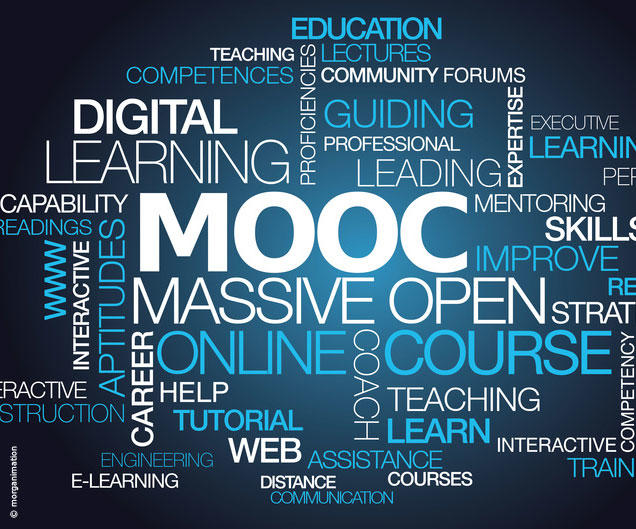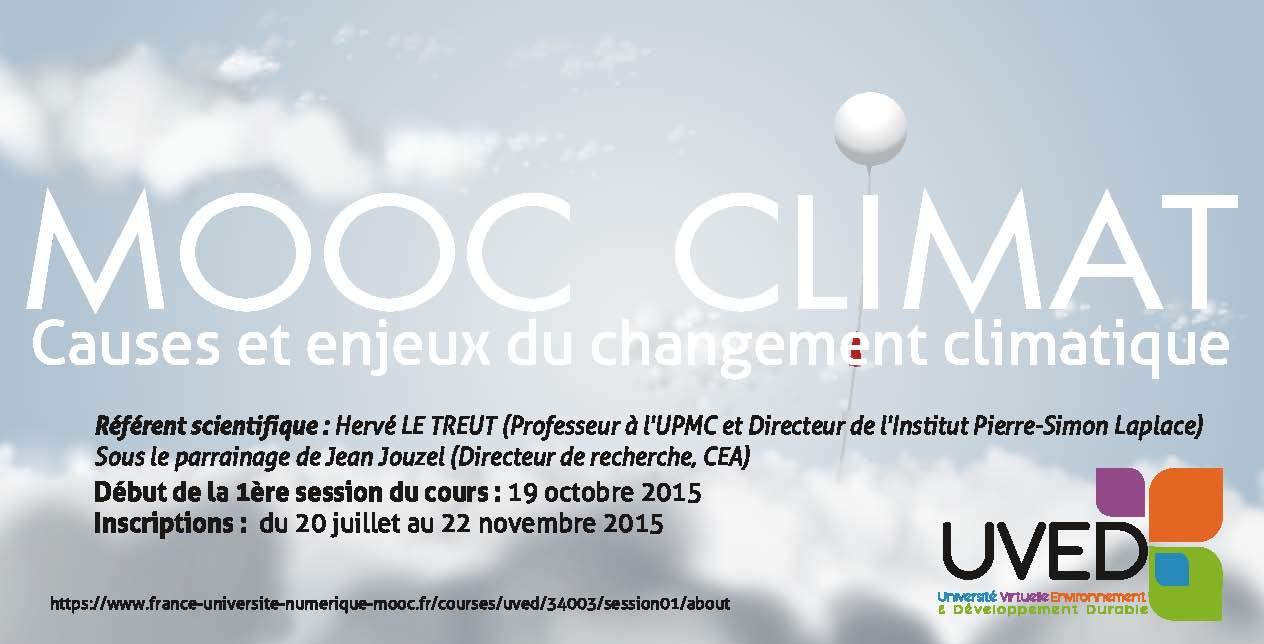
Environment and Biodiversity
Place
French-speaking world, Web
Sponsors
Sandrine Sourisseau
Amélie Rouvin
Coline Jacobs
Pierre Victoria
Grants
€25,000 during the Committee meeting of 17/10/2014
€25,000 during the Committee meeting of 16/09/2015
€25,000 during the Committee meeting of 13/10/2016
€25,000 during the Committee meeting of 25/10/2017
Project leader
Sandrine Sourisseau: “I believe that the Biodiversity MOOC was extremely well put together. We have a great many things to say about those topics and we are working hard with the team of experts and with Gilles Bœuf to enhance content.
Created and supported by the Ministry of Higher Education and Research, the Environment and Sustainable Development Virtual University (Uved) aims to contribute to the education and training of all environment and sustainable development stakeholders. Its specificity is that it develops intangible knowledge transmission tools. The Uved provides digital resources and training tools of high scientific, educational, and technical value.
MOOCs to share knowledge
Since 2013, the UVED’s ambition has taken the shape of online courses accessible from any connected device. These Massive Open Online Courses (or MOOCs) consist in publishing courses and organizing their dissemination to a very large number of participants. In addition to the expertise transmitted, there are also interactions among the students on one hand and the teachers on the other.
MOOCs are a new way of providing education which allows the knowledge generated inside the world’s most prestigious higher education institutions to be widely shared. The courses are structured to promote flexible learning, i.e. learning what you want, when you want.
Raising awareness about biodiversity
In 2014, the UVED began designing a MOOC on biodiversity with the support of the Veolia Foundation. The aim was to provide markers on those issues and to show that preserving ecological dynamics is everyone’s concern. As such, the UVED hopes to contribute to changing social perceptions about biodiversity as well as helping to increase protection efforts by societal stakeholders.
The course was developed by Gilles Bœuf, Chairman of the National Natural History Museum (MNHN), who brought together scientific experts, including Veolia researchers, to work on every topic in the MOOC: defining biodiversity and drawing lessons from past crises, ocean biodiversity and resources, continental biodiversity (rivers, forests, farming), biodiversity and cities, biodiversity and health, managing biodiversity, biodiversity and the humanities.

The experts decided on the content (about ten 6- to 7-minute videos), and also provided additional activities (quizzes, exercises, extra resources, live conferences etc.). When creating the program, they called upon other experts; in all, 35 specialists were involved in the making of 70 videos included in this Biodiversity MOOC.
Climate change at the COP21
One year later, the UVED launched a new MOOC. Also supported by the Veolia Foundation, the course came out a few weeks prior to the COP21 and was devoted to the “Causes and Challenges of Climate Change”. The aim was to sketch out an overall chart of the issue of climate change by providing participants with enough elements to be able to express a personal opinion about the multiple controversies surrounding this topic. Initially produced in French, the videos have been translated into English. Hervé Le Treut, Professor at Pierre et Marie Curie University and Ecole Polytechnique, as well as Director of the Pierre-Simon Laplace Institute, provides the science endorsement, while Jean Jouzel (CEA) is the course sponsor.
About forty persons from 15 higher education and research institutions were involved in the project: eight scientific experts and 38 contributors. The course was dispensed in stages from October 19th to November 30th, 2016. Following that six-week period, the videos that were used in the MOOC have remained in open access to teachers and educator teams.

“As COP21 Topic Coordinator for the Veolia Group, I strongly support this planned MOOC about the climate, for it provides a wide audience with open access to the course (in fact, the topic is a complex one, requiring this kind of teaching)." Amélie Rouvin
Ecological engineering in 2017
The Foundation’s support to the UVED has been extended through a planned MOOC about ecological engineering, headed by Luc Abbadie, Professor at Pierre and Marie Curie University and Director of the BIOEMCO Laboratory/Paris Institute of Ecology and Environmental Science (CNRS UPMC, IRD, INRA, UPEC, ENS). He brought together a scientific supervisor and a team of experts from a variety of disciplines and organizations (higher education institutes, research bodies, businesses, local authorities etc.). Over five-weeks, the course reviewed the history of ecological engineering, the reasons behind its development, its ecological foundations, and the challenges to be taken up (agroecology, adapting cities to climate change, managing ecosystem services, ecological compensation etc.), and, of course, the social background. The course also featured examples of successes and failures in ecological engineering to draw some lessons.
Sustainable Development Goals in 2018
Uved will be designing a new MOOC on the Sustainable Development Goals (SDGs) in 2018. These 17 SDGs, set by the United Nations in 2015, aim to respond to the challenges of globalization based on the three components (environment, social, and economic) of sustainable development.
To design this new educational material, Uved will ask for assistance from several national and international experts, from North to South, and from both higher education and research institutions and the non-academic world. Each week will feature videos and online educational activities that will provide real collaborative learning and which take the social and cultural diversity of students into account. This MOOC in French will also be dubbed in English and Spanish. It will seek to cover all local and global measures to implement the SDGs, and to provide theoretical and operational elements of awareness and appropriation to the various stakeholders involved in defining and implementing these policies (economic stakeholders, local authorities, public authorities, civil society) focusing on education in the broadest sense of the term as recommended by Unesco. Each week will propose orientations, issues, and actions in France and abroad as well as the conditions for implementing the SDGs (winning strategies, efficient technologies, support for the dissemination of innovative approaches, etc.).
Increasing learning materials on the environment contributes to raising everyone's awareness of the design of a collective future.
“Raising awareness among the greatest possible amount of people leads to change and fosters acceptance of new concepts, methods and practises. That is our core reason for supporting the MOOC devoted to ecological engineering. We fully support free, open access to the teaching materials (to be subsequently returned) so that anyone can learn.” Coline Jacobs
Crédits picture: Morganimation/Fotolia
- Opening of registration for the "Causes and challenges of climate change" MOOC supported by the Foundation
- COP21: Five Veolia Foundation partners present at the Grand Palais
- Over 7,400 learners followed the MOOC on the Causes and Challenges of Climate Change
- Follow the second session of the MOOC entitled “The Causes and Challenges of Climate Change”

